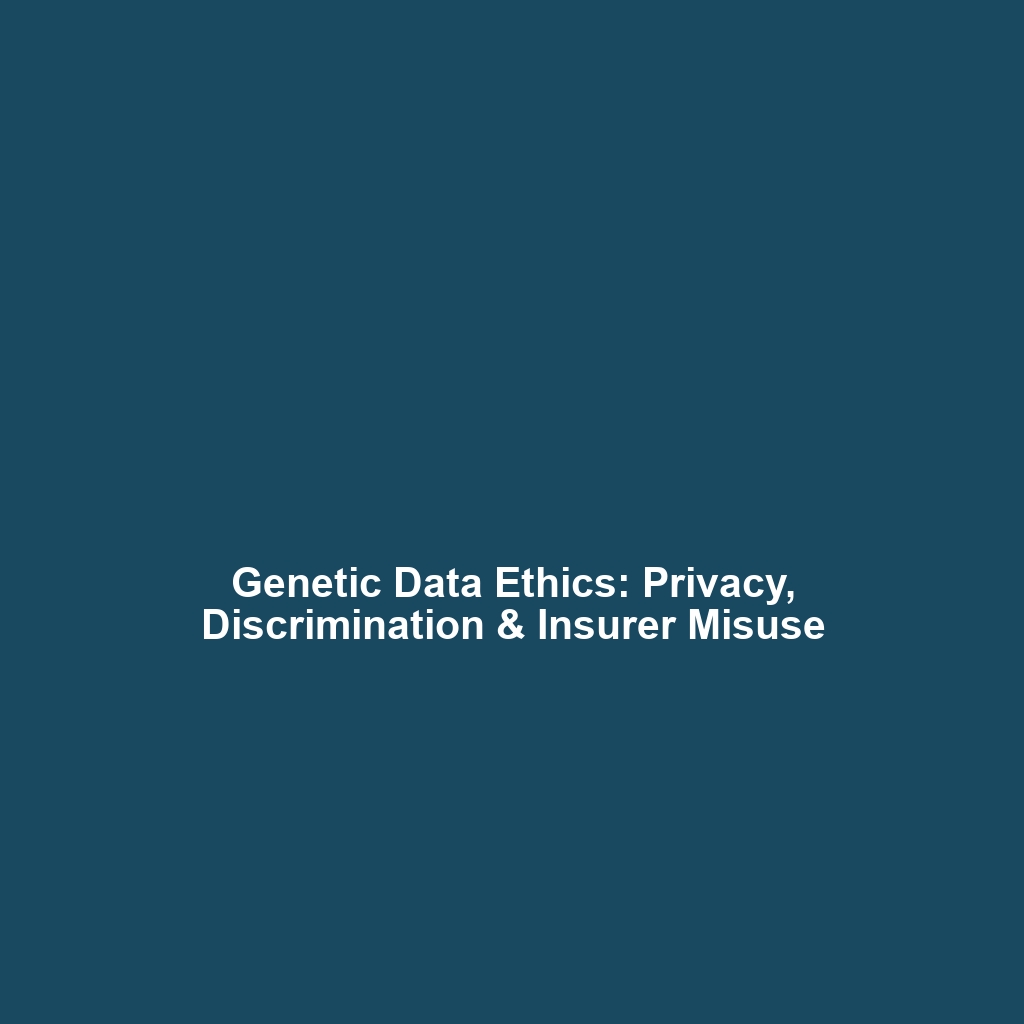Major Goals of the Human Genome Project
Category: Human Genome Project
Introduction
The Human Genome Project (HGP) stands as a landmark achievement in the field of genetics, aiming to unravel the complex blueprint of human life. One of the primary goals of the HGP includes identifying all the genes within human DNA, an estimated 20,000–25,000 genes. Another critical aspect is determining the sequence of the 3 billion DNA base pairs and ensuring this valuable information is systematically stored in databases for ongoing research. Understanding these major goals is essential, as they pave the way for advancements in medical research, genetics, and personalized medicine.
Key Concepts
Several key concepts underscore the major goals of the Human Genome Project:
- Gene Identification: The process involves locating and cataloging every individual gene within the human genome, which lays the foundation for further genetic research and therapy.
- DNA Sequencing: Determining the exact order of nucleotides in DNA provides insights into genetic variations, disease mechanisms, and evolution.
- Data Storage and Accessibility: Establishing databases that organize genetic information aids in research collaboration and the dissemination of knowledge.
Applications and Real-World Uses
The insights gained from identifying all genes and sequencing DNA have considerable real-world applications:
- Medical Research: It informs the development of targeted therapies tailored to individual genetic profiles.
- Genetic Testing: Enhanced understanding of genetic predispositions contributes to preventative medicine.
- Forensic Science: DNA sequencing aids in criminal investigations and paternity testing.
These applications illustrate how the transparency of the human genome can transform various sectors including healthcare and law enforcement.
Current Challenges
While the goals of the Human Genome Project are ambitious, a number of challenges persist:
- Data Management: The sheer volume of data necessitates robust data storage and analysis techniques.
- Ethical Considerations: Issues related to privacy and genetic discrimination continue to pose significant concerns.
- Funding and Resources: Sustaining funding for ongoing research is critical for translating discoveries into practical applications.
Future Research and Innovations
The future holds exciting prospects for advancements in genome science:
- Next-Generation Sequencing (NGS): Innovations in NGS technology are making sequencing faster and more cost-effective.
- CRISPR Technology: This gene-editing tool shows promise for correcting genetic disorders identified through the HGP.
- Integration with AI: Artificial intelligence will facilitate complex data analysis and the identification of patterns within genomic information.
Conclusion
In summary, the major goals of the Human Genome Project—identifying genes, sequencing DNA, and establishing accessible databases—are fundamental for advancing our understanding of genetics and improving medical outcomes. The implications of this initiative are vast, leading to breakthroughs that can enhance human health and well-being. For more detailed insights, explore our articles on applications of genomics, gene editing techniques, and ethical issues in genetics. Together, we can appreciate the immense value of the Human Genome Project in shaping the future of science and healthcare.


